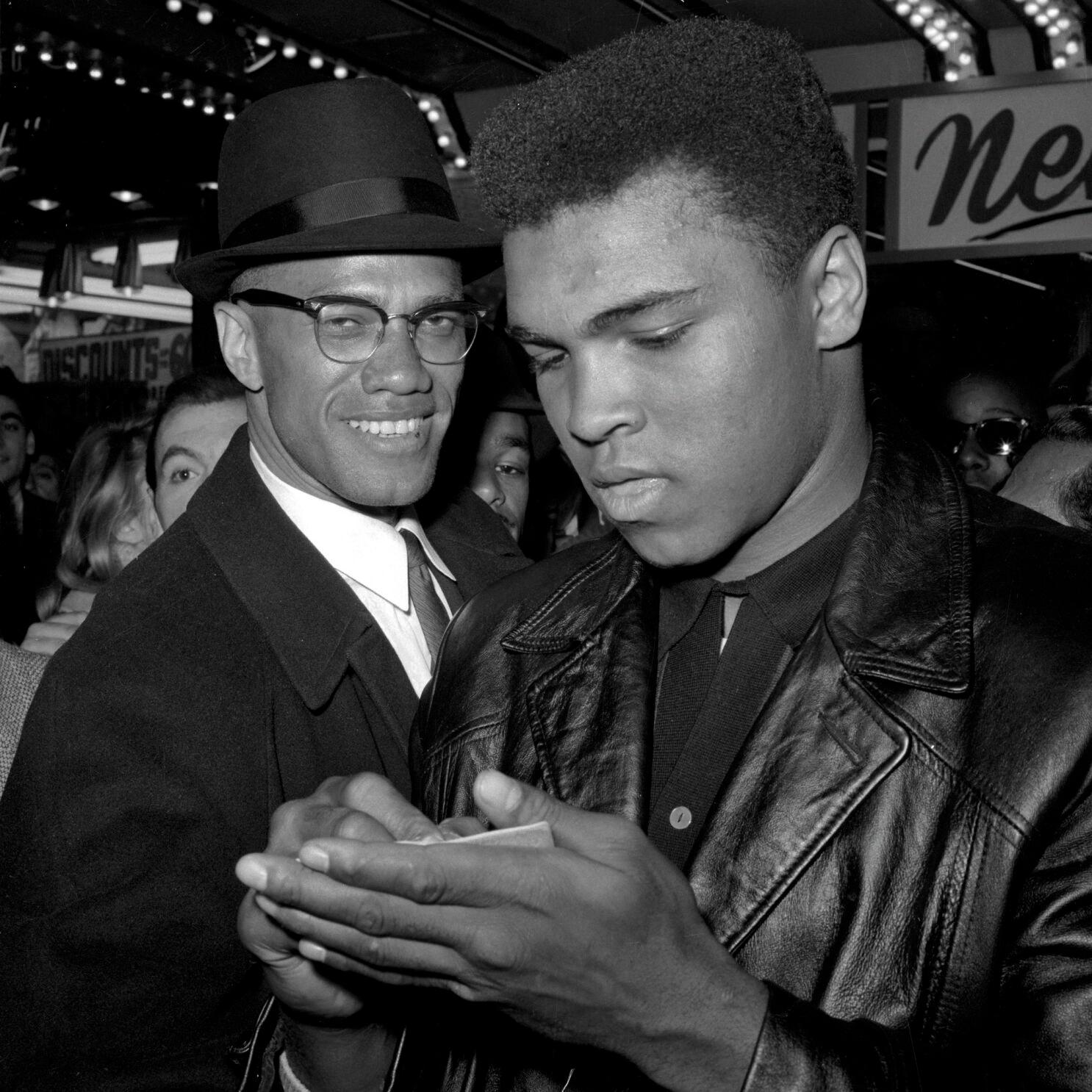Bumpy Johnson And Malcolm X: The Unlikely Alliance In Harlem's Underbelly
The streets of Harlem during the mid-20th century were not just a backdrop of struggle but a stage for some of the most influential figures in American history. Among them were Bumpy Johnson and Malcolm X, two men whose paths crossed in a world where crime, race, and social justice intertwined. While Bumpy Johnson was known as a notorious gangster, Malcolm X emerged as a powerful voice for civil rights. The intersection of their lives paints a complex picture of friendship, respect, and shared goals amidst contrasting lifestyles.
The story of Bumpy Johnson and Malcolm X is often shrouded in myth and legend, but it is essential to understand the historical context in which they operated. Harlem was a hub for African Americans seeking refuge from systemic oppression, but it was also a place where the underbelly of crime flourished. Bumpy, who rose to prominence in the criminal world, understood the streets in a way that few could. Meanwhile, Malcolm X was carving out a new identity for Black Americans, advocating for empowerment and change through his eloquence and fiery speeches.
As these two iconic figures navigated their respective realms, they occasionally crossed paths, forming a relationship based on mutual respect. Their connection reveals a unique dynamic that reflects the complexities of race relations and the fight for justice in a divided America. This article will delve deeper into the lives of Bumpy Johnson and Malcolm X, examining their biographies, personal details, and their enduring legacy in the fight for equality.
Who Was Bumpy Johnson?
Bumpy Johnson, born on October 31, 1905, in Charleston, South Carolina, was not just a gangster; he was a symbol of the Harlem Renaissance's darker side. His life was characterized by crime, power, and a certain level of respect among his peers. Bumpy was known for his intelligence and strategic mind, which he used to navigate the treacherous waters of organized crime.
Bumpy Johnson's Biography
| Detail | Information |
|---|---|
| Name | Bumpy Johnson |
| Born | October 31, 1905 |
| Place of Birth | Charleston, South Carolina |
| Occupation | Gangster, Racketeer |
| Died | July 7, 1968 |
How Did Bumpy Johnson Impact Harlem?
Bumpy Johnson's influence in Harlem was undeniable. He was a key figure in the organized crime scene, running numbers games and various illicit enterprises. However, he was also known for his philanthropic efforts within the community. His duality as a criminal and a benefactor created a complex legacy:
- Supported local businesses and families in need.
- Maintained a significant degree of control over the neighborhood, ensuring that violence was managed.
- Commanded respect from both peers and adversaries.
Who Was Malcolm X?
Malcolm X, originally named Malcolm Little, was born on May 19, 1925, in Omaha, Nebraska. He became one of the most influential figures in the civil rights movement, advocating for Black empowerment and pride. His journey from a troubled youth to a powerful orator is a testament to resilience and transformation.
Malcolm X's Biography
| Detail | Information |
|---|---|
| Name | Malcolm X |
| Born | May 19, 1925 |
| Place of Birth | Omaha, Nebraska |
| Occupation | Civil Rights Activist, Minister |
| Died | February 21, 1965 |
What Was Malcolm X's Role in Harlem?
Malcolm X emerged as a powerful leader during a time when African Americans were fighting for their rights and identity. His eloquence and passionate speeches resonated with many in Harlem, where hope and despair coexisted. His connection to the Nation of Islam and later, his more inclusive approach to civil rights, made him a pivotal figure in the community.
- Advocated for self-defense and empowerment for Black Americans.
- Encouraged education and self-awareness within the African American community.
- Fostered a sense of pride and identity among those who felt disenfranchised.
Did Bumpy Johnson and Malcolm X Ever Meet?
Yes, Bumpy Johnson and Malcolm X had a complex relationship that was rooted in their shared experiences in Harlem. While they operated in different spheres—Bumpy in organized crime and Malcolm in activism—their paths crossed during the tumultuous 1960s. Their meetings were characterized by respect, as both men recognized the challenges faced by the African American community.
What Can We Learn from Their Relationship?
The relationship between Bumpy Johnson and Malcolm X serves as a powerful reminder of the complexity of social struggles. Their interactions highlight several key themes:
- The necessity of understanding different perspectives in the fight for justice.
- The importance of community leaders, regardless of their methods, in uplifting marginalized voices.
- The shared goal of seeking a better future for African Americans, albeit through different means.
How Did Their Legacies Shape Modern Activism?
Both Bumpy Johnson and Malcolm X left indelible marks on the landscape of American history. Their legacies are still felt in contemporary discussions around race, crime, and justice. Bumpy's life serves as a cautionary tale about the pitfalls of crime, while Malcolm's journey reflects the power of advocacy and education.
In summary, the stories of Bumpy Johnson and Malcolm X are intertwined in the fabric of Harlem's history. Their lives remind us that the struggle for equality is multifaceted, and that understanding different narratives can enrich our approach to social justice. As we continue to navigate the complexities of race relations today, the lessons from their lives resonate more than ever, urging us to seek a holistic understanding of our shared histories.
Article Recommendations
- Megan Fox Pregnant
- Ryan Paevey Wife
- Mma Fight Share
- How Long Is The Simon And Garfunkel Story
- Daryl Mccormack Wife
- Zin Manga
- Nina Hartley
- Waylon Jennings Children
- Massey Big Sur
- John Nettles


